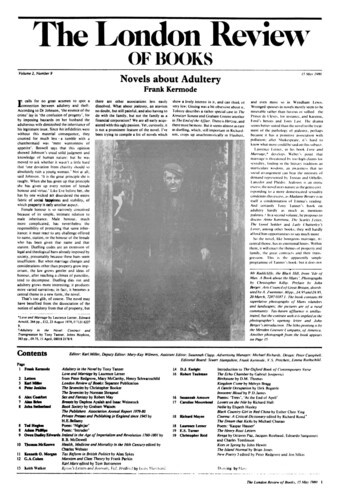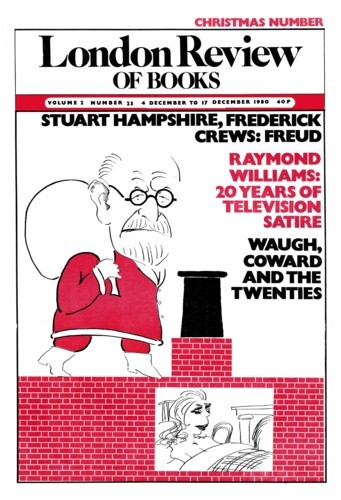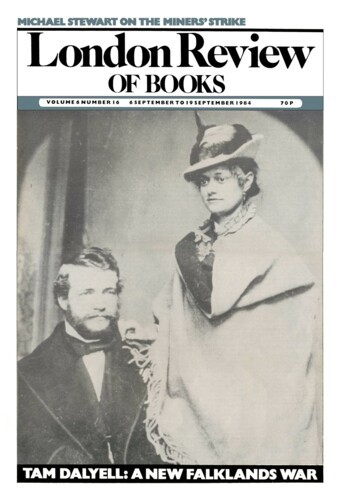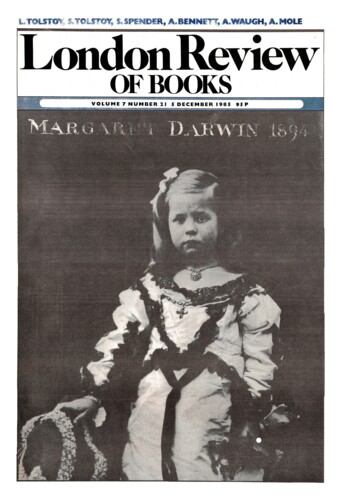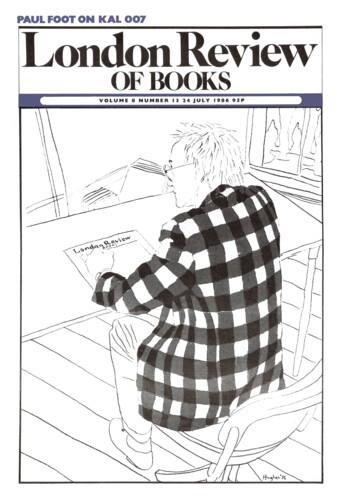Titbits
Alan Brien, 15 May 1980
It is worthwhile to note, first of all, that this book is American, though you don’t have to read far to discover that. To the British eye, interview questions such as ‘How do you relate to the term “flat-chested”?’ or ‘How have men related to your breasts?’ seem slightly comical, and even unnatural, as normal speech. And you would have to travel far in this country, and be rather unlucky, to come across a woman who dropped into conversation, as one does here, the sentence: ‘I’m still not entirely deculturated in terms of my aesthetic values.’ But then it is also American to have, alongside this half-educated, pseudo-scientific academe-speech – with the two languages often used in alternate sentences by the same speaker – a parallel tradition of tough, direct, demotic bar-talk: ‘All I need is some asshole to make a comment like “Geez, you don’t have any tits at all!” and I promise you, they would carry the bastard off on a stretcher!!’
